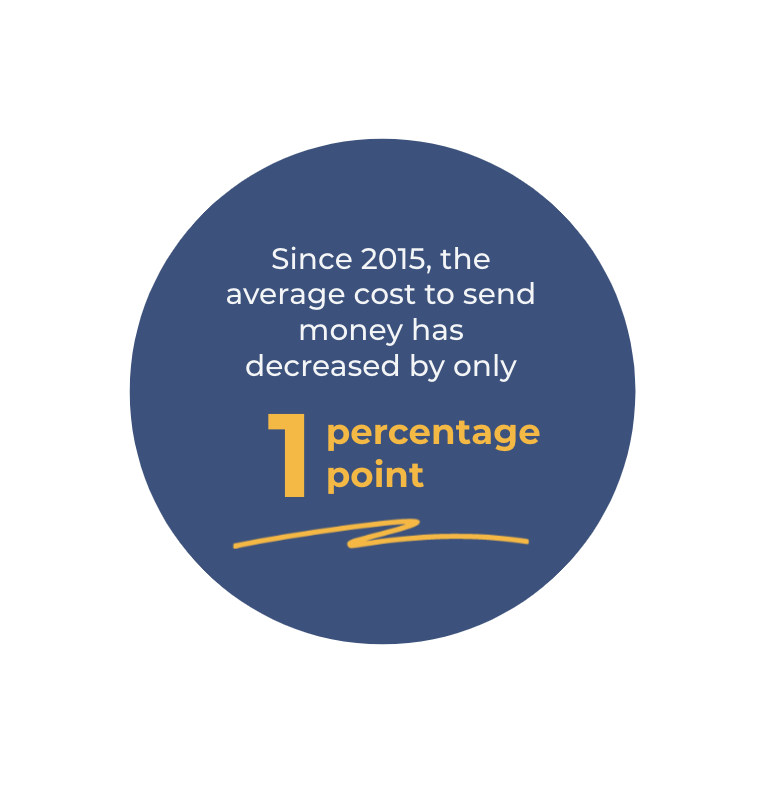Report: Lowering Remittance Costs
Can G20 sending countries achieve the UN goal of 3% costs by 2030?

In 2021, G20 sending countries sent nearly $215 billion in remittances
But nearly $11.5 billion was lost to fees along the way
Post-pandemic, remittances will play a vital role in bolstering the global economic recovery. Now more than ever, low- and middle-income communities rely on money sent home from friends and family abroad, with remittance flows now surpassing average foreign direct investment.
If more progress had been made on lowering the cost of remittances to the 3% target set by the United Nations, the people on the receiving end could have received $5 billion more.

Remittance costs: why we need transparency
Remittances are a lifeline to hundreds of millions of people around the world. The 13 G20 sending countries power nearly half of those money flows. Yet, it remains expensive for people in those countries to send money abroad.
The United Nations Sustainable Development Goal 10c aims to reduce the cost of remittances to less than 3% by 2030. However, the current average in G20 countries is a staggering 6.5%, and remittance costs have only dropped by 1 percentage point since the SDG was introduced in 2015.
Loopholes and inefficiencies in these systems make remittances more expensive than they should be. To lower costs in line with the UN’s 3% target, more transparency in the market is necessary. Banks and foreign exchange providers must disclose the total costs in a single upfront amount, including fees at both ends and foreign exchange rate margins. Allowing for a truly competitive market to emerge will lead to lower prices.
.png)
Kristo Käärmann, CEO and Co-founder of Wise

Wise | Report
Lowering Remittance Costs.
Can G20 sending countries achieve the UN goal of 3% costs by 2030? Join the fight against hidden fees globally here.